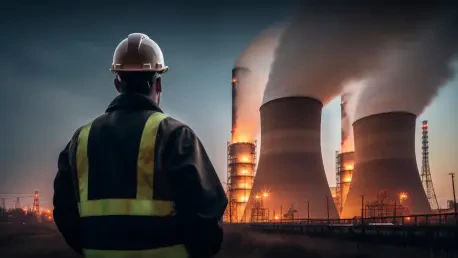Introduction
The Flamanville 3 project, undertaken by EDF, has faced significant delays and financial problems, highlighting the challenges within the nuclear power industry. This timeline aims to track key events of the Flamanville 3 reactor project, illustrating its development from inception to current status, including financial struggles and operational issues. Understanding the sequence of events and their impacts will provide insights into the turbulent journey of EDF’s project, underlining the multifaceted challenges faced today.
Key Events
2007 – Project Commencement
EDF announced the Flamanville 3 project, planning to build a new European Pressurized Reactor (EPR) to enhance France’s nuclear capabilities. The ambitious project set initial expectations for completion by 2012.
2012 – Initial Delays
The anticipated operational date was pushed back due to technical and regulatory issues, marking the first major hurdle. These delays began to cast doubt on the timeline and financial projections.
2015 – Financial Complications
EDF experienced significant cost overruns, increasing the projected budget from €3.3 billion to nearly €10.5 billion. This period underscored mounting financial pressures and uncertainty surrounding the project.
2019 – Construction Completion
Construction completed after numerous delays, but the reactor faced stringent inspections. Technical issues in the welds and reactor components further delayed its operational debut.
December 2022 – Initial Operations
Flamanville 3 started generating minimal power, a milestone overshadowed by persistent technical problems requiring further maintenance. EDF continued stress-testing the reactor, aiming for a ramp-up in operations.
Summer 2023 – Planned Full Operations
EDF announced plans for the reactor to achieve full operational status by summer, though subsequent delays and more maintenance pushed this timeline further, highlighting ongoing struggles.
Recent 2023 Events – Further Maintenance Extensions
EDF extended maintenance by another week in late 2023 to address issues in three components of the nuclear part, following an earlier two-month delay due to problems with the cooling circuit and turbo alternator rotors.
Conclusion
The timeline reveals several turning points, such as initial delays in 2012, escalating costs in 2015, and continued technical challenges. Each of these points significantly impacted the project’s trajectory and EDF’s financial stability. Overarching themes included technological difficulties and shifts in regulatory standards, influencing project delays and escalating costs. Notable gaps during the project indicated a need for advanced technical solutions and robust management strategies to avoid recurring issues in future projects. The complexities of the Flamanville 3 project extended beyond EDF’s technical challenges. Regional factors such as France’s energy policy and competitive dynamics in the European nuclear industry added layers of complexity. Expert opinions highlighted innovations in nuclear technology, suggesting potential methodological improvements and stress management techniques to mitigate operational hitches. Common misconceptions revolved around the perceived feasibility of large-scale projects, underscoring the need for realistic project management practices and transparent communication of progress and setbacks. Understanding these issues could help EDF and other industry players develop more effective strategies in future nuclear projects.









